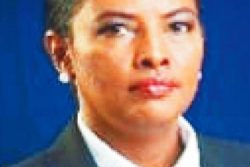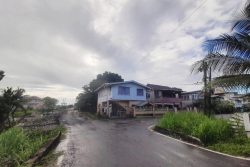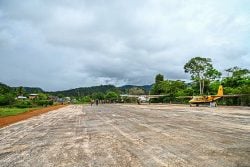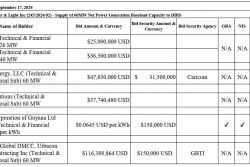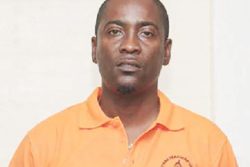In the perception of the ruling party there is no heterogeneity or variety in the local world in which they function; whatever external appearances might suggest everyone and every organisation within our 83,000 square miles is political in character. And where that is concerned Freedom House sees only two political categories: the PPP and the opposition, for which one can read the old PNC in one form or another.
No matter the changes which have been wrought over the decades, technological and otherwise, the ruling party is still fighting ancient battles and adjusting the historical account to accommodate its vision of a bygone reality. So it was no great surprise when its line at the National Toshaos Conference last week reflected a familiar stock theme. The Thursday SN editorial described President Irfaan Ali’s address to the assembled Toshaos as being more suited to a political campaign rally than anything else, highlighting as it did the ‘we versus them’ story that everyone is so familiar with.
Since this was an Indigenous conference, the ‘them’ in this instance was usually the Amerindian Peoples’ Association, which has assisted communities such as Chinese Landing and Isseneru in their applications to the Inter-American Commission on Human Rights, and in the case of the former, also to the UN Committee on the Elimination of Racial Discrimination. The critical report from both international bodies on the government’s violation of Indigenous rights in Chinese Landing will hardly have endeared the APA to the administration.
It was Vice President Bharrat Jagdeo who gave notice that the NGO was to be a target when he discharged a fusillade in its direction even before the conference had opened. According to the DPI Mr Jagdeo “exposed” its historical association with the opposition, identifying Ms Laura George and Ms Jean La Rose specifically in that connection. “I suspect [that] it is a bunch of dishonest, unethical people who will sacrifice all that they claim to stand for, which is Amerindian development, for their political motives,” he was quoted as saying.
There is no explanation as to why someone associated with APNU and/or the AFC would necessarily be opposed to Indigenous development, but then this is a reflection of the demonisation of the opposition in any of its forms by the ruling party, which in its view has never achieved anything worthwhile at any point in its history. Freedom House has adopted an even more absolutist view since the attempt to rig the last national election by APNU+AFC, admittedly a shockingly retrograde move considering the apparent if incomplete progress the PNC had made since its autocratic days.
That shameful episode notwithstanding, it does not follow from this that everything the opposition has ever done was of no benefit to society and only what the PPP accomplished is worthy of consideration, let alone that the latter has never made any mistakes. Nor has the government explained why in its view individuals and organisations which have criticised it are always inspired by self-seeking political motives, while those which support it have no political motives. As it is it has constructed its own political-ethical divide in the society equating to PPP v opposition.
And if the Vice President set the tone for what was to come at the Conference, as noted earlier the President took up the baton, also spending a considerable time enlarging on what the government had done for the Amerindians in circumstances where they had been marginalised before 1992. His grasp of historical details was sometimes defective, such as when he stated that land rights were guaranteed under the Amerindian Act of 2006, which had been enacted by the PPP/C administration.
Aside from the fact that the Amerindian Act secured full support from the opposition, if anyone should be given credit for securing Indigenous land rights it should only be Stephen Campbell, the first Amerindian parliamentarian, who attended the independence conference of 1965 and argued the case for land. As a consequence of his lobbying, this right was recognised in the Agreement for the Independence of Guyana, following which the Amerindian Lands Commission was set up to investigate which land was occupied by which group.
The first actual land grants came in 1976 under the PNC, although attached to some very backward colonial legislation which the 2006 Act was intended to remedy. While the PPP/C may be responsible for more land-titling than any other government ‒ the technical aspect of the issue which is important for legal reasons ‒ they can take absolutely no credit for land rights. They were not even present at the 1965 conference.
The APA has also taken the head of state to task over what he has said about the history of the NTC. The NGO outlined its role in supporting the inaugural conference which was held in 2003 and said it was instrumental in establishing a platform for Indigenous voices.
Somewhat contradictorily President Ali inserted into his speech the claim that he welcomed diverse opinions. “We don’t have an issue with persons disagreeing,” he was quoted as saying, “but when you disagree, we also have a democratic right to present our case, we have a democratic right to explain our policy, we have a democratic right to defend ourselves.” No one would deny him that, but the problem does not relate to his right of reply, but the right of citizens, including Amerindians and those representing them, to criticise in the first place.
Minister of Amerindian Affairs Pauline Sukhai did not mince her words. She lambasted the APA for attempting to divert attention from the solution-oriented discussions between Indigenous leaders and the government. This, she asserted, was directed at sabotaging the unity and progress achieved at the Conference,
“The truth is glaring,” she went on. “The APA is solely concerned with positioning itself in a self-appointed, self-righteous role that allows them to attract donor financing by manufacturing a crisis, by creating a narrative of need that justifies their continued existence.”
The APA not surprisingly issued more than one statement in its own defence saying it was independent, non-political and non-partisan, and had always prioritised the well-being of Indigenous communities. “Any suggestion that we are ‘in bed with the opposition’ is a gross mischaracterisation designed to undermine our credibility and distract from the legitimate concerns we raise on behalf of our people,” it wrote.
No one would suggest that the APA is always right any more than the government is, or that it has not made mistakes or even pursued wrong avenues perhaps, but to accuse it of not genuinely trying to promote the interests of Indigenous people is ludicrous. The vitriolic nature of the government’s attack opens the PPP to the accusation that it sees Indigenous citizens as little more than a potential electoral asset, whose views therefore must be controlled.
And there have been complaints about the government’s attempts to control the NTC for years, although the attempts are somewhat less blatant now. Nevertheless they are still being made and they are coming from participants at the Conference. At least one Toshao mentioned issues with the agenda and political interference, and where the President’s address was concerned said he did not look forward to that kind of “aggressive rhetoric.” And as for the APA, he said he had worked with that organisation, but that when he entered the Conference hall he did so as a Toshao, not an APA delegate. “I think we have a right to an opinion and we should be mutually respectful …”
With an election coming up it is almost certainly too much to hope that the government is going to suddenly become respectful.
